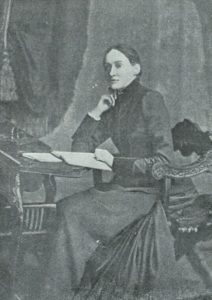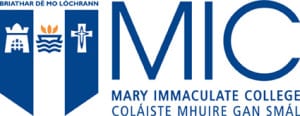‘Everybody who wrote was a wonder to me’ Katharine Tynan, 1913
Geraldine Brassil, PhD student, Mary Immaculate College, Limerick

Literary networks played a vital role in the careers of nineteenth century women writers. Professional journalism, as Joanne Shattock (2018) has noted, relied on contacts and contemporary women had varying stratagems for making key connections. Jane Wilde (1821-1896), for example, made her Dublin home a focal point for academics, artists, and writers. It was at one of Lady Wilde’s ‘afternoons’ at Park Street, London, however, that Katharine Tynan (1859-1931) was introduced to her son Oscar. Finding him ‘pleasant, kind and interested’ (1913, p.129) Tynan notes her later indebtedness to him for accepting her as a contributor to a magazine that he edited (Woman’s World, she thinks), on foot of this connection (p.130). Breaking into the London literary scene at the same time as Tynan, Hannah Lynch (1859-1904) was also introduced ( as ‘a young Irish genius’) to Oscar Wilde by his mother (1884) at one of her Saturday salons (Binckes and Laing 2019, p.12). The impact of fin-de-siècle Paris salon culture was to inform and enable Lynch’s literary career (Binckes and Laing 2011) while Tynan’s memoirs, recalling her active networking, read like a directory for all those involved in the literary and publishing worlds of nineteenth century Ireland, and indeed, internationally.
As a PhD researcher, my thesis, essentially a recovery project, taps into these nineteenth century literary networks. Taking specific periodical literature as a framework, I am reclaiming distinct female voices and identities that were neither silent nor marginal. In 2019, I was fortunate enough to be appointed postgraduate assistant researcher with the Irish Women’s Writing (1880-1920) Network. Being part of this impressively connected group which, in fact mirrors the nineteenth century women’s literary networks that I am uncovering, has had a huge impact on the advancement of my research. Not only have I benefited practically, receiving generous advice when I experienced difficulty in sourcing archival material held in UK and US libraries but also, because I am part of this vibrant community, I am connected with and have been able to draw on the interdisciplinary expertise of members and their publications brought together under the umbrella of the Network.
Working in the area of nineteenth-century periodicals and the recovery and revival of interest in contemporary Irish women’s writing generally, my research is foregrounding the female voice and thus connecting in spirit to current campaigns on sex/ gender imbalances such as ‘Fired! Irishwomen Poets and the Canon’ and ‘Waking the Feminists.’ In the present era of Covid however, research has become an even more solitary occupation, and the Network, for me, represents a valuable connecting space which fosters communication between scholars, students and researchers within and outside of academia. Not only is the IWWN becoming an important scholarly resource, providing access to a treasure trove of material including the new blog series ‘Research Pioneers’, an events page which keeps up to date with CFP’s, a useful links page (please email any links that you have found informative), podcasts and extensive primary and secondary bibliographies under continual construction, it also encourages discussion and offers a platform for presenting new work.
The exciting new Postgraduate Forum will foster an international community of early career researchers. Its aim will be to develop conversations and connections and to facilitate exchange of ideas around nineteenth and early twentieth century Irish women’s writing.
Bibliography:
Tynan, Katharine (1913), Twenty-Five Years Reminiscences, London: Smith, Elder & Co.
Binckes, Faith and Laing, Kathryn (2019), Hannah Lynch 1859-1904: Irish Writer, Cosmopolitan, New Woman, Cork: Cork University Press
Binckes, Faith and Laing, Kathryn (2011), ‘A Forgotten Franco-Irish Literary Network: Hannah Lynch, Arvède Barine and Salon Culture of Fin-de-Siècle Paris’ in Études irlandaises, vol. 36, no. 2, 157-171.
Shattock, Joanne (2018), ‘Researching periodical networks: William and Mary Howitt’ in Alexis Easley, Andrew King and John Morton, eds., Researching the Nineteenth-Century Periodical Press: Case Studies, London and New York: Routledge 60-73.
Waking the Feminists https://www.irishtimes.com/culture/stage/waking-the-feminists-wins-special-us-award-1.2659404 (Accessed 3 September 2020).
Fired! Irish Women Poets and the Canon http://www.rascal.ac.uk/institutions/fired-irish-women-poets-and-canon (Accessed 3 September 2020).



